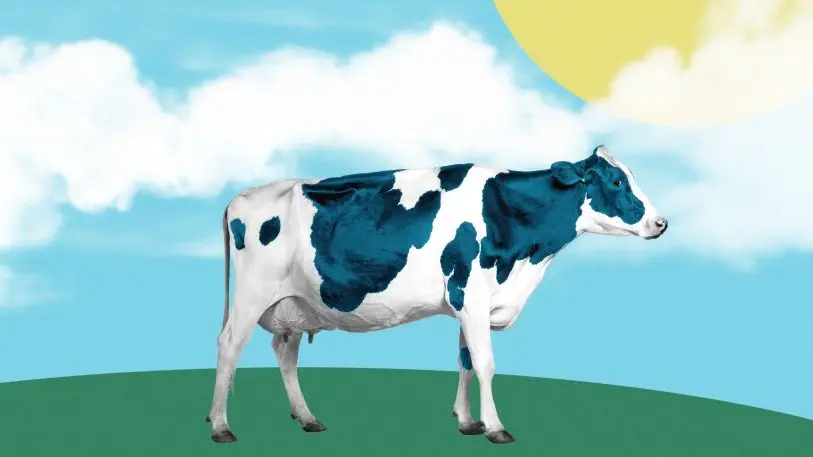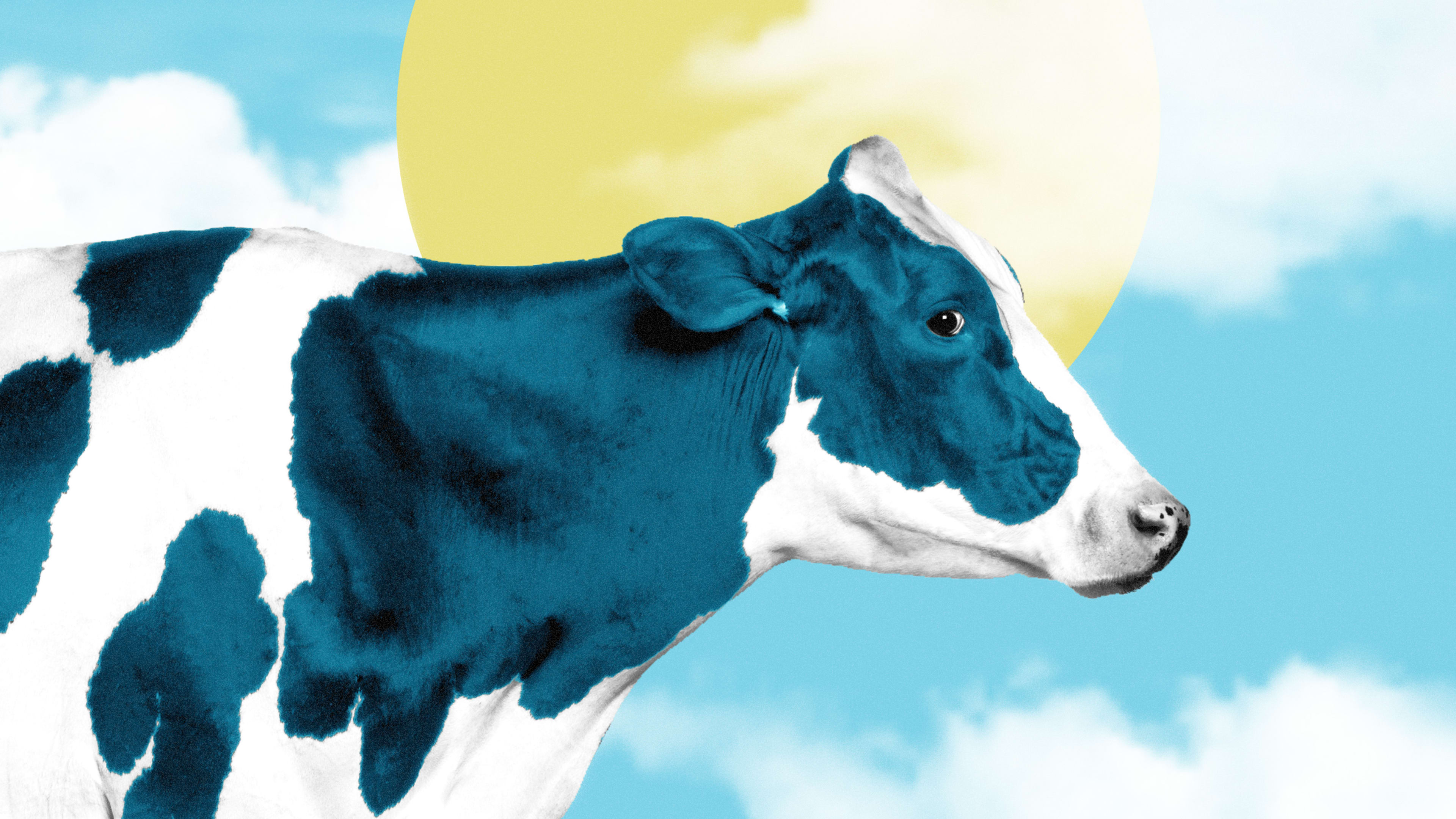At Brades Farm, a dairy in Lancashire, England, farmers now market their milk as “climate-smart”: The dairy is one of the first to begin feeding its cattle a new supplement that shrinks the amount of methane, a potent greenhouse gas, that cows emit when they belch. Mootral, the Switzerland-based company making the new supplements, will soon be issued the world’s first carbon credits for methane reduction in cows.
Cow burps are a big part of the reason that beef, cheese, and ice cream have large carbon footprints, and Mootral wants to help the industry transform. Methane is 84 times as potent a greenhouse gas as carbon dioxide. A single industrially farmed cow produces roughly as much pollution as six average European cars; there are around 1.4 billion cattle in the world. By one estimate, cows emit more climate pollution globally than the entire economies of Japan or Germany.
“A lot of people eat meat, and a lot of people eat dairy products, and for the foreseeable future, that is not going to change in a significant way,” says Mootral CEO Thomas Hafner. “If it does, then, good for the planet. But even though we see a move towards non-dairy alternatives, and people going to non-animal protein sources, populations in other parts of the world are progressing from a cereal-based diet into an animal protein-rich diet. Whatever we lose on one side, we’re going to gain on the other, if not more. What we provide is a solution to reduce the impact of that down the line.”

It’s a challenging product to develop. The mix has to be right, so that it has no detrimental effect on the milk, meat, or the animal itself. In peer-reviewed studies, the product has been a success, reducing emissions from belches by 30% without adverse effects. (In one test on Brades Farm, which has been using the supplements for the last 12 months, emissions dropped as much as 38%.) The company is continuing to run several trials—now interrupted by COVID-19—that will prove how well the supplement works for different breeds of cattle and in different climates.
The next challenge will be gaining wide adoption. “We think farmers should have no cost attached to this,” says Hafner. Instead, large dairy companies or restaurant chains that want to cut emissions could buy the product, which can cost around $55 a cow per year. He says he is currently in talks with some large companies, including a beef producer with 60 million head of cattle. “There’s a significant interest, but people are still trying to figure out how to make it pay. Is it a marketing thing? Is it a premium on the product?” In tests, Mootral has tried serving consumers “climate-friendly” tacos and burgers and saw that they would pay more. The extra charge would only add around 3¢ to the cost of a Big Mac. (McDonald’s is among the companies testing the product, on a test farm in the Netherlands, The New York Times reports.) Dairy cattle that eat the product make an average of 4% more milk, so for dairy farms, the investment can pay back over time.
Mootral also plans to sell carbon credits. Last December, Verra, a company that certifies carbon offsets, approved a method for measuring how much dairies using the new product were reducing emissions. The first audit at Brades Farm was completed in March, and Verra will soon approve the audit and issue carbon credits. But the pandemic is slowing the company’s progress. An investment round that was set to close in March collapsed because of the health crisis, field tests have been delayed, and sales that were set to begin later this year are also delayed.
The product doesn’t eliminate all of the challenges of meat and dairy production, such as when tropical rainforests are cut down to make room for cattle pastures. But if it succeeds in scaling up, the impact could be significant. If every cow in the world ate the supplement, Hafner says, it would reduce 1.5 billion metric tons of CO2 (depending on how methane emissions are calculated, the impact could actually be larger). To give a sense of the scale, if all cars in the world were as efficient as European cars, that would be roughly the equivalent of taking every car in the world off the road.
Recognize your brand’s excellence by applying to this year’s Brands That Matter Awards before the early-rate deadline, May 3.
